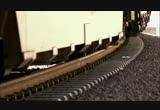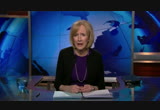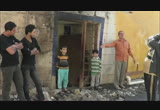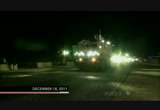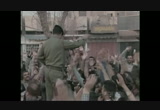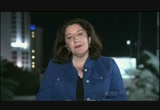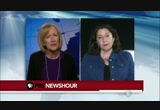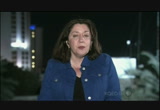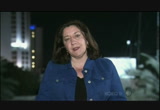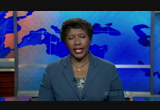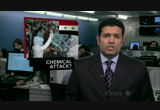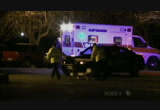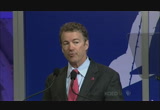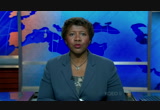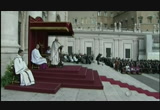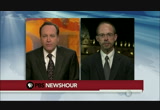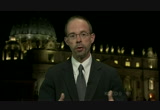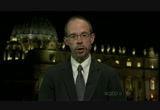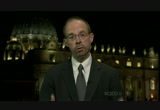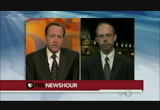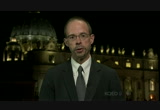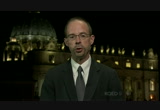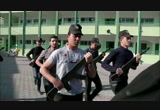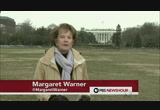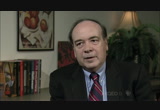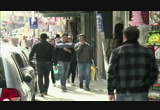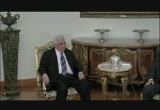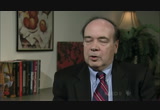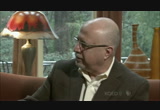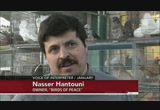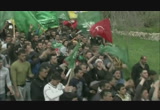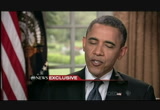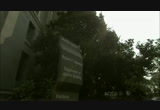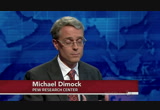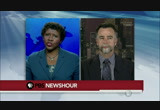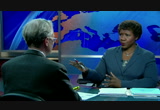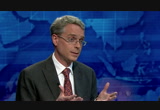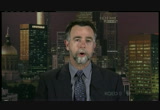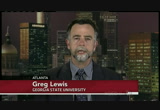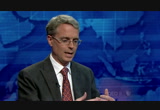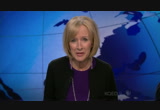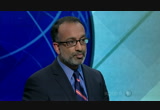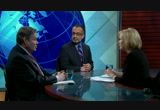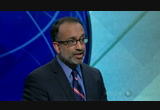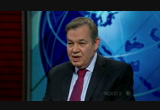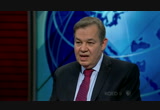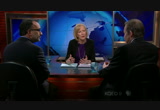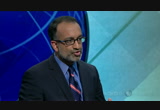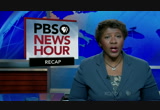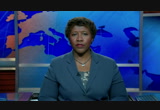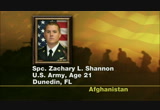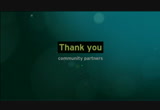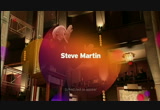tv PBS News Hour PBS March 19, 2013 3:00pm-4:00pm PDT
3:00 pm
moving our economy for 160 years. bnsf, the engine that connects us. >> and by the bill and melinda gates foundation. dedicated to the idea that all people deserve the chance to live a healthy, productive life. >> and with the ongoing support of these institutions and foundations. and... >> this program was made possible by the corporation for public broadcasting. and by contributions to your pbs station from viewers like you. thank you. >> woodruff: a decade after the iraq war began, the violence has not abated. today was the bloodiest day this year, as insurgents staged multiple attacks. a high-level minister was assassinated and dozens more died.
3:01 pm
a warning: our story contains some graphic images. thick, black smoke rose above the sadr city district in baghdad, where a car bomb went off today, in one of several coordinated attacks to rock the iraqi capital. 65 people were killed and more than 100 wounded. in another instance, an explosion ripped through a popular market near baghdad's fortified green zone. >> there is a checkpoint at the main gate, but it is in vain. they do not search anybody. the car arrived and parked here, exploding and killing people. >> woodruff: the violence targeted mainly shiite neighborhoods and highlighted the sectarian strife that still exists, ten years to the day since the u.s.-led invasion of iraq began. >> at hour american coalition forces are in the early stages of military operations to disarm
3:02 pm
iraq, to free its people and to defend the world from grave danger. >> warner: it started with a wave of hawk is-and-awe air strikes. explosions lit up the night sky in baghdad. three weeks later, the capital fell as residents cheered the arrival of american and coalition forces. marines toppled a statue of ousted leader saddam hussein, one of the first iconic images of the conflict. another iconic image from the war came in may of 2003 when president george w. bush announced the end of major combat operations in iraq while aboard the u.s.s. "abraham lincoln." >> in the battle of iraq, the united states and our allies have prevailed. >> reporter: but it would be more than eight years before the last u.s. military convoys rolled out of iraq. >> i'm happy! i'm happy to be out of iraq.
3:03 pm
>> reporter: nearly 4,500 americans were killed during the war that spanned close to nine years. along with more than 100,000 iraqis. some of the conflicts' bloodiest battles were fought in fallujah when u.s. forces faced off against insurgents and four u.s. contractors were attacked. their charred bodies were dragged through the streets. in december, 2003, saddam hussein was captured by u.s. troops who found him hiding in an underground hole. he would be tried by an iraqi tribunal and found guilty of crimes against humanity and was executed in december, 2006. was what wasn't found in iraq were active weapons of mass destructions or w.m.d.s, something many in the bush administration had stated saddam hussein had at his disposal. president bush addressed the issue during a 2005 speech.
3:04 pm
>> we made the decision to go into iraq, many intelligence agencies around the world judged that saddam possessed weapons of mass destruction. this judgment was shared by the intelligence agencies of governments who did not support my decision to remove saddam and it is true that much of the intelligence turned out to be wrong. >> warner: a report released this month put the cost of iraq's reconstruction at more than $60 billion so far. that on top of 1.7 trillion in estimated war costs according to a recent study by brown university. today some baghdad residents spoke of little progress and expressed anger at the united states. >> the americans did not do anything when they came to iraq. they granted freedom to iraq? what freedom are they talking about? >> warner: in washington, president obama issued a statement marking the anniversary saying he joined in paying tribute to all who served and sacrificed in one of our
3:05 pm
nation's longest wars. earlier i spoke to jane arraf a reporter earlier, i spoke to jane arraf, a reporter for al-jazeera english and the christian science monitor, about today's violence in baghdad and life in post-war iraq. welcome jane. what is known about who or what's behind today's car bombings and suicide attacks? >> well, the finger, judy, is always pointed at al qaeda and al qaeda-linked groups. because they view the attacks to have the fingerprints of that organization. it was extremely coordinated attack as you saw, more than 20 bombs, many car bombs and then for good measure they threw in some suicide bombers as well as sticky bombs on the bottoms of buses. most shi'a target and security targets. that sits in to what al qaeda is doing, try to destabilize the country by showing people its security forces can't protect them and trying to stir up the
3:06 pm
sectarian war that this country has recently emerged from. if. >> woodruff: how unusual is it to have so many attacks on the same day? >> it was a bad day, that is certainly indisputable. i was at a university today talking to university students and they were holding a party because they were graduating. you can see the smoke rising and you could hear gunfire and these are people, young iraqis who grew up in war. they were so unphased by it they went on about their day. they went to classes, went to ceremonies, so people here, iraqis have learned to live with this which is a very sad comment. at the same time, what happened today scared people a little bit. i think probably you will see fewer people on the streets in the next couple of days. if. >> woodruff: jane, tell us what conditions are like in iraq now. what is day to day life like for ordinary iraqis? >> it's better than it was a few
3:07 pm
years ago but i think we have to keep mentioning, that was such a low bar because we all say it's better than it was a few years ago. well, a few years ago there were bodies in the streets. a few years ago you literally when you left your house didn't know whether you would return home. a few years ago there are families who lost bodies they never found. so there's a bit of a sense of relief that it is happening and because it's so bad people get on with their lives. if you go down one of the main commercial streets at night, there's so many families going out and at the same time you can go into places here. a couple of days ago i saw someone on the edge of town in the neighborhood where there is hardly any electricity, no sewage system. kids don't go to school because there's no school there and that's not that unusual. that this is potentially a hugely rich country but you wouldn't know it when you walk through the streets.
3:08 pm
somehow around the edges people have found a way to make it seem as if some semblance of normal plif goes on but they realize it could be so much better. >> woodruff: finally, what are people saying about the war? >> that's such an individual question to that and i ask it constantly is that underlying question. was it worth it? and the answer to that depends on what happened to each person, what happened to each family. there are a lot of people here, probably it will majority of people, who are still very glad that saddam hussein is g.o.p. but what i found increasingly in covering this country over the years and being here day to day is that people are more and more saying, yeah, it's great he was gone but maybe we would have put up with him for the sake of the certainty of knowing our kids would be okay when they go to school. really what happened was that people traded the oppression
3:09 pm
that they were under for freedom in a sense but that freedom came with danger they face everyday there was no fuss made of the anniversary, people don't commemorate anniversaries like that unless they're politicians but when people think back on the last ten years it is a history of loss and sadness. young people are in a bit of a different frame of mind. they didn't lose quite so much they're looking towards the future and more optimistic. their elders look back over the past few decades and think of the tragedy that this could have been that it wasn't and still isn't. judy? >> woodruff: jane arraf joining us from baghdad. thank you. >> thank you. >> ifill: we'll come back to the legacy of the iraq war at the end of the program tonight. between now and then on the newshour, a call for humility at the official vatican ceremony; the divide among palestinians; and the shift in public opinion
3:10 pm
on gay marriage. but first, with the other news of the day, here's hari sreenivasan. >> sreenivasan: there were dueling claims today over whether syrian rebels executed a chemical weapons attack in the northern part of the country. footage from state-run television showed victims arriving at a hospital in aleppo province. government officials put the number of dead at 31, with more than 80 others wounded. but rebels denied they fired any chemical weapons. and in washington, white house press secretary jay carney questioned the syrian government claims. >> we have no evidence to substantiate the charge the opposition has used chemical weapons. we are deeply skeptical of a regime that has lost all credibility and we would also warn the regime against making these kinds of charges as any kind of pretext or cover for its use of chemical weapons >> sreenivasan: president bashar assad is widely believed to have a chemical weapons arsenal, including nerve agents as well as mustard gas. the parliament of cyprus voted to reject a bill that would tax
3:11 pm
bank deposits in order to qualify for an international bailout package. to receive $13 billion from the e.u. and the international monetary fund, cyprus has to raise $7.5 billion on its own. but taxing people's bank accounts proved unpopular, even when the provision was added to shield small savers. banks across cyprus will remain closed until thursday to avoid a run on cash. uncertainty about the cyprus situation set markets around the world and on wall street on edge. the dow jones industrial average gained more than three points to close above 14,455. the nasdaq fell eight points to close at 3229. seven u.s. marines were killed after a mortar unexpectedly exploded during a training exercise in western nevada. military officials said that prompted the pentagon to halt the use of the mortar worldwide until an investigation can be completed. the accident happened last night at the hawthorne army depot. the marines who were killed were based at camp lejeune in north carolina. seven other marines and sailors were injured in the explosion.
3:12 pm
a proposed ban on assault weapons will not be part of a gun control bill slated for debate next month. california senator diane feinstein said it will instead be offered as an amendment. but that amendment is unlikely to survive because of solid republican opposition. three other gun control measures have been approved by the senate judiciary committee: a measure to decrease gun trafficking, a proposal to increase school safety money, and a background checks bill. republican senator rand paul put his support behind comprehensive immigration reform today. during a speech at the u.s. hispanic chamber of commerce, the kentucky republican said the nation's 11 million illegal immigrants should have a legal way to stay in the u.s. >> we will find a place for you. this cause, however, those who work for reform must understand that a real solution
3:13 pm
must ensure our borders are secure. we must also treat those who are here already with understanding and compassion without also unduly rewarding them for coming illegally. >> sreenivasan: bipartisan efforts are under way in both the house and senate to overhaul u.s. immigration laws. today speaker of the house john boehner called the house version a "pretty reasonable solution." the number of americans dying from alzheimer's disease has increased by 68% in the last decade. according to the alzheimer's association, one in three seniors have some form of dementia when they die, and the disease accelerates the progression of other life- threatening conditions. because alzheimer's has no cure or treatment to slow symptoms, a growing elderly population means dementia mortality rates will only continue to rise. those are some of the day's major stories. now, back to gwen. >> ifill: pope francis formally took office today with a special mass and ceremonies. we begin with a report from james mates of independent television news in rome. >> it was among the ordinary pilgrims to st. peter's that pope francis started his day.
3:14 pm
it is common now for a pope to kiss babies-- less so for them to get out of the popemobile and walk over to give a blessing to a disabled person. inauguration mass at st. peter's square was less or nate than in the past but it could not be described as either simple or understated. heads of state, all their representatives occupied the front row, but this service was squarely aimed at the 150,000 pilgrims who stood to see the new leader of their church. among those, they watched the first time ever the symbol of the papacy, the fisherman's ring was placed on the finger of a man from latin america. his homily was an instruction to get back to core principles.
3:15 pm
"embrace the whole of hue moonty especially in the poorest, the weakest, the most important." for almost a week his introduction has been a series of meetings and now this inauguration. after today the work proper begins and to do list is considerable. in his first week, francis has been spectacularly successful in defining the style of the papacy winning approval for its substance will take a lot longer >> woodruff: and to a look at the early messages from the new pope, and the challenges ahead for him. for that, jeffrey brown talked with john allen a short time ago. allen covers the vatican for the "national catholic reporter" and is an analyst for cnn. >> brown: john, welcome once again. what signals and tone are people there picking up from the pope today and in recent days? >> jeff, in effect today was the end of a beginning. from wednesday when pope francis stepped out on that balcony
3:16 pm
overlooking st. peter's square through his inaugural mass this morning what he's been doing in effect to s to spro introduce himself to the world and as introductions go most people here believe it's been a great performance. he's charmed people with this emphasis on a humbler, simpler style in the papacy closer to the people. beginning now the focus shifts from style to substance. how is this tone going to be translated into the hard work of governing the church and there the challenges are considerably more steep. >> brown: give us a sense of what he's up against. a lot of talk about the hierarchy, the bureaucracy of the vatican. how things work. what is he up sghebs >> well, it's quite clear to everyone that this pope was elected on a reform mandate. that is the other 114 cardinals in the sistine chapel who elected cardinal jorge mario bergoglio as pope francis want someone who is going to shake up
3:17 pm
entrenched ways of doing business in the vatican and when they talk about reform they're not talking about secular model of reform meaning changes to church teaching on matters such as abortion or birth control. instead they're talking about changes in business management in the vatican towards making the bureaucracy here more transparent, that is both internally and externally, making it clearer who's making decisions and why and also doing a better job communicating with the outside world towards making it more accountable. that is the idea that there ought to be penalties for poor performance and towards making it efficient. the notion being is that there thinking in centuries may have cut it once upon a while but in a 21st century world it simply doesn't do it anymore. that's what these cardinals mean by reform and they have embraced pope francis tasman who can deliver it. whether it plays out in practice that way, of course, remains to be seen. >> brown: is there an expectation that on one key matter the sexual abuse scandals that he has to do something
3:18 pm
fairly quickly,? whether it's make a gesture or take action? >> well, i think it's very clear to anyone who's been paying attention that the child sexual abuse scandals which have been such a cancer for the catholic church for the better part of the last decade has been a significant blow to its moral authority in our lifetime. i think catholics worldwide are hoping the new pope will take aggressive action. there have already been some reports that have raised questions about his record on the crisis in argentina. there are cases dating from 2007 and 2008 where allegedly then cardinal bergoglio didn't react aggressively enough. i suspect what is going to loom much larger is not what's in his past but his present. that is how is he going to respond as pope. and certainly if you look to critics of to the response of the sexual abuse crisis, what they would tell you is that although benedict 16th did move
3:19 pm
the church forward in terms of embracing the zero tolerance policy for abuser priests that was not matched by an equal commitment to zero tolerance for the bishops who covered it up and they are looking for a clear signal from the new pope, pope francis, that there will be accountability for bishops who drop the ball, who don't respond as they should to accusations of abuse against catholic clergy. if he delivers that, i suspect most people will be willing to say that this pope on that issue does indeed profile as a reformer. >> brown: you mentioned his performance in argentina. the other thing supreme looked at was his role during the so-called dirty war. some daily stories looking back on the role of the church generally and he -- him specifically. how seriously is that being taken there at the vatican. can you snell >> well, i think on that issue there is basic confidence that these accusations probably aren't going to have any licks.
3:20 pm
that they were first surfaced eight years ago in the runup to the con clive if 2005 when then-cardinal bergoglio was also a serious candidate. a book came out in argentina alleging that he had been complicit in the arrest and torture of two jesuits. remember, the new pope is a member of the jesuit and during the '70s he was a regional superior in argentina for that religious order. the charge was that he had been complicit in the arrest and torture of two members of his ordzer. he firmly denied those charges. what happened in the meantime is that one of these two jesuits who now lives in germany has come forward to say that as far as he is concerned the case is closed and he's praying for the success of francis' papacy and a nobel peace prize winner argentina known as a ferocious critic of the military junta has come forward to say that he believes the charges against the new pope basically are false and don't have any merit. i think the vatican has basic confidence that at the end of the day this record is going to
3:21 pm
survive scrutiny and that evaluations of him won't be based so much on his past as his present. that's how he responds to the challenges facing him as pope. >> brown: just very briefly, john, going back to what we saw today, you're talking about the substance going forward but what we saw today, the emphasis on humility, the less pomp, the way he was out in the square today, all that must have played awfully well there, being there for it, right? >> oh, absolutely. it played enormously well everywhere except with the vatican security personnel. that's the one constituency that hasn't succumbed to the charm of this new pope because they are scrambling to figure out how to keep up with the guy who quite clearly does not want to be shackled per protocol or be put inside a bubble and separated from people. and, frankly, i think there are real concerns going forward if he continues to comport himself in this fashion whether or not they'll be able to guarantee his security. >> brown: all right, john al men from rome, thanks as always.
3:22 pm
thanks so much. >> ifill: you can watch the full installation mass online, including the pope's homily translated into english. >> woodruff: next, to the middle east, where president obama is headed tonight. he'll make three stops: jerusalem, ramallah on the west bank, and amman, jordan. last night, we explored fractures in israel's new coalition government. tonight, we turn to the political and ideological split among palestinians. margaret warner reports. >> warner: this is not your typical afterschool program, it's paramilitary training for palestinian high school students in gaza. it was instituted by hamas, the militant islamist movement ruling this impoverished district which israel withdrew from in 2005.
3:23 pm
gaza is home to 1.7 million palestinians packed into an area the size of atlanta >> i'm here to learn how the use weapons. the program teaches us to defend ourselvess, to organize in school and everywhere. >> warner: it's offered in all of gaza's high schools, it's further evidence of hamas's entrenched grip on power here. after winning a majority in palestinian elections in 2006 hamas violently expel fad a from gaza. fatah is the older establish secular party of mahmoud abbas, also known as abu mazen which now runs palestinian affairs on the west bank. as president obama travels to israel and the west bank this week, they are trying to assess whether a real opportunity exists for the united states to try to revive the long-stalled israeli/palestinian peace process.
3:24 pm
but among ordinary palestinians, he'll find no expectations that the u.s. can or will do anything to change the situation. >> when obama came to power we hoped he'd have a different policy but israeli pressures have had influence on him. >> he is not welcome here in palestine. what will he do for us? all of them are standing with israel, not with the palestinian people. >> warner: an even bigger hurding: the deep division among palestinians reflected in the ongoing split between hamas and fatah. this wall on the street in gaza is adorned by the smiles of two dead men-- yasser arafat, the fatah founder and first palestinian president who died in 2004-- and hamas spiritual leader sheikh achmed yassin, assassinated by his israel earlier that year. but the long time member of the p.l.o. says the two movements
3:25 pm
are poles apart. hamas and fatah have a serious split. it's multifaceted. it's geological because is hamas is based on islam and it's also social. it's territorial because hamas controls gaza and it's personal until the sense that you have many people who have vested interests and who have positions of privilege. >> reporter: the two movements also represent two schools of thought on how to deal with israel. mark perry is a foreign policy analyst who remains close contact with the hamas leadership. >> abu mazen has gambled very explicitly and said very explicitly that there will be no violence against israel and he will negotiate in good faith with israel. the problem is that hasn't gotten him anywhere. hamas has a totally different approach and their approach is resistant. they believe israel will only
3:26 pm
come to the table when they feel pain. >> warner: a bring number of palestinians see justification for that belief. last november a week of palestinian rocket fire from gaza and israeli air strikes led to an egyptian-brokered cease-fire between hamas and israel. as part of that, some israeli restrictions on gaza were eased. the year before, hamas secured the release of a thousand prisoners from israeli jails in return for handing over gilad shalit, the israeli soldier it kidnapped in 2006. >> it has sent a clear message to the palestinian people if you abduct soldiers the they will be released but if you sign agreements about w us about releasing prisoners we won't honor those agreements. >> warner: many israelis say the palestinian split means there's effectively no one for israel to negotiate with and among palestinians in gaza, at least, there seem to be some confusion on that point as well. >> ( translated ): the p.l.o.--
3:27 pm
represented by abu mazen-- is the only representative. >> ( translated ): there are two authorities in leadership. we hope the division ends soon. >> warner: the p.l.o., led by abbas, is internationally recognized as speaking for palestinians, a fact hamas says it accepts. but abbas cannot simply move forward without hamas says shipley tellhami, director of the sadat center for peace and development at the university of maryland. can abu mazen speak for the palestinian people? >> not without hamas. and let me put it this way there's no question the palestinian people are divided and in my own mind there is no way that any palestinian leader can sell a compromise solution. which means you would matly he's going to have to have hamas backing. >> warner: abbas and the hamas leader have engaged in halting reconciliation talks moderated by egypt's new islamist government but both camps
3:28 pm
suspect a major outside player may be trying to dissuade a healing of the breach. the u.s. has been pressuring the palestinian leadership not to reconciliate with hamas? >> i may be blunt. i think the pressure has not been overt or public but yes. there have been pressures. war warp this hamas official sees the same. >> ( translated ): the reconciliation is no longer between fatah and hamas, it's become something between fatah, hamas, the u.s., israel, the e.u. and some arab regimes. the external pressures and the american dictates that bring up conditions on the reconciliation are what prevent it from happening. >> warner: mark perry says u.s. funds for the palestinian authority may have been used as kuj jell. >> the reconciliation talks were going very well. up until the end of february. and what happened is obama announced that he is going to
3:29 pm
israel and the united states--s believes-- made it clear to abu mazen that if reconciliation talks were to continue there would be no funding. >> warner: the u.s., israel and the e.u. consider hamas-- whose charter threatens the obliteration of israel-- to be a terrorist organization. in 2011, then secretary of state hillary clinton was asked if a just-announce pred limb their agreement between hamas and fatah would prompt the u.s. to reconsider aid for the palestinian authority. secretary clinton said "we've made it very clear that we cannot support any government that consists of hamas unless and until hamas adopts principles that have been well known to everyone for a number of years." the principles include recognizing the state of israel. shipley tellhami says the u.s. should be prepared to drop that insistence when it comes to political parties if it hopes to broker a peace deal. >> i think we should insist that any palestinian government-- whether it's hamas or whoever it is-- meet certain conditions
3:30 pm
including being against terrorism, meeting its international obligations with parties we never insist they meet certain obligations and i think we're going to have to reassess. the environment has changed. if there's still time far two-state solution we're on the last leg. >> warner: why the last leg? >> israelis and arabs no longer believe in the two-state solution. >> warner: during our recent trip in january, we found many palestinians who've lost belief in the peace process. nasser hantuni owns birds of peace, a pet shop just inside the west bank. he works in site of the security wall israel erected during second palestinian intifada, or uprising, in the early 2000s. >> ( translated ): we feel very frustrated. for the past 20 to 22 years we've had hope in negotiations and yet there are no concrete results on the ground and still we haven't reached peace. all we sue is more settlements,
3:31 pm
the wall, checkpoints, closures and constraints over the palestinians. 90% of us have lost hope of reaching a peaceful solution with the israelis. >> warner: do you think that there's a possibility that if nothing happens on the peace front more violence will break out? >> it could be, yes. it is a valid alternative due to the stress this nation is living under. >> warner: hanan ashwari worries without progress abbas may not be able to hold it together much longer. >> obviously it's a situation of tremendous volatility. the palestinians are under scourge of -- i don't want to say explosion or implosion but public opinion is extremely inclined, people are very ang at what's been happening. the leadership losing support for a variety of reasons including the nondelivery of peace or security for the palestinians. >> warner: a giant tangle
3:32 pm
awaiting mr. obama on his first venture into the thicket of the middle east. >> woodruff: after filing that story, margaret left for the middle east. she'll file reports about president obama's trip all week. >> ifill: now we turn to what appears to be an evolving sea change on attitudes toward gay marriage, even as the supreme court prepares to tackle the issue. steadily and remarkably, public and political support far same-sex marriage is on the rise. the shift has been under way in the courts, in congress and, most recently, among leading politicians of both parties. president obama split from opposition to support dominated headlines last year. >> at a certain point i just concluded that for me personally it is important for me to go ahead and affirm that i think
3:33 pm
same-sex couples should be able to get married. >> ifill: last week, ohio's rob portman became the first senate republican to announce his support. two years ago, he said, his son told him he is gay. >> that launched an interesting process for me which was rethinking my position, talking to my pastor and other religious leaders and going through a process of, at the end, changing my position on the issue. >> ifill: republican response was muted. house speaker john boehner said his position remains the same. >> i appreciate that he's decided to change his views on this but i believe that marriage is a union of a man and a woman. >> ifill: yesterday former secretary of state hillary clinton said she, too, has exexpanded on her previous support for civil unions. >> i support marriage for lesbian and gay couples. i support it personally and as a matter of policy and law.
3:34 pm
embedded in a broader effort to advance equality and opportunity for l.g.b.t. americans and all americans. >> ifill: her husband, former president bill clinton, is now calling on the supreme court to overturn a federal ban on same-sex marriage that he signed in 1996. a challenge to that law is scheduled for court argument next week. recent surveys tracked the change in public opinion. 58% of those polled by the "washington post" and abc news now say it should be legal for gay couples to wed. as recently as seven years ago, 58% of americans told pollsters they oppose gay marriage the justices are also taking up a related issue this term. california's ban on same-sex marriage, proposition 8. the justice department argues that prop 8, as it is known, violates the constitution's guarantee of equal protection. but the hard-and-fast party line
3:35 pm
that once defined the issue appears to be fading. more than one hundred republicans have signed on to a legal brief arguing for reversal of the california law. but prop 8 supporters in a new brief filed with the court today argued that while political winds may be shifting, legalizing same-sex marriage offers a "genderless conception of marriage that is essentially unqrnd procreation." joining us to discuss now, joining us to discuss what's been changing and why, are michael dimock, director of the pew research center for the people and the press, and greg lewis, a professor with the andrew young school of policy studies at georgia state university. he's written extensively about shifting attitudes toward same sex marriage. michael dimock, what is driving this change? it's unargueble that there's a change going on, but why? >> it's one of the biggest changes we've mean? the last decade and it's driven by two things: the arrival of a new generation that now makes up over 25% of adults in this country, millennials, who are very supportive of this and
3:36 pm
their support is growing more intense as time passes. but you're finding a lot oaf people of all ages who have changed their minds on this over time. that about a third of supporters say they themselves have shifted in that direction as time has passed. >> ifill: greg lewis, do you determine it's a political shift cultural shift? knee other or both? >> i would say it's all of those things. we've seen very dramatic 20-point rises in support for same-sex marriage over the past decade. we've been seeing increases of that size on a variety of gay rights issues sort of lagged over the past 30 years. >> ifill: michael dimock said it was about young people changing their minds and people getting more exposed to other people with different background. what is your sense in your research? the. >> definitely the younger people are much more supportive.
3:37 pm
basically every ten years younger a person is they're about seven points more likely to support marriage. people born since 1980 are about 35 points more likely to support marriage than people born before 1930 and every year where the population is shifting more and more to the people born since 1980. clearly there's some major political and religious things going on here. liberals, moderates, democrats and inspects are moving faster on this issue than are republicans and conservatives. like wise, catholics, protestants are moving faster than evangelical protestants. >> ifill: michael dimock, this argument used to be about civil unions versus marriage and marriage used to be sacrosanct, untouchable, not a very long ago. now no one talks about civil unions anymore. >> you don't hear as much about it. there's still a divide. about two-thirds of people say
3:38 pm
they'd favor fully equal rights for same-sex couples as heterosexual couples but support for actual gay marriage is lower than that across any different polling. so there is still a gap there. i think the issue has shifted in a way it's been argued on both sides. that this seemed to be maybe a safe middle ground or steppingstone towards marriage for some people i think a lot of advocates don't see it that way, that it's now defining it as something different than marriage is not what they want to see happen. >> ifill: when you define it as being legal versus illegal is that different than saying the right -- the sacrament of marriage? do you ask the question differently that way do you get different answers? >> you do. and that suggests there are people torn over this. we find a majority of people say they think gay marriage goes against their religious belief but a majority also says they think that same-sex couples should have the same rights. you have someone somewhere over a quarter of a public who's torn between their moral and religious arguments and their
3:39 pm
feelings about fairness and equity and those people can be affected by the way questions are worded and the context of what they're looking at. >> ifill: greg lewis, we talk about demographics but i wonder whether there's a geographic part of this and an educational part of this which would drive people's opinions. have you been able to see that? >> i definitely have. currently there are about 12 states where there is a majority support for same-sex marriage and all of them have got some sort of legal recognition for same-sex couples. on the other hand, in the deep south support is still probably mid-30s whereas it's probably 60% or more in massachusetts and much of the northeast. like wise, beam college degrees or bachelors degrees are markedly more likely to support same-sex marriage than are people who didn't complete high school or have no college. >> ifill: michael dimock, are the people ahead of the politicianstor politicians ahead
3:40 pm
of the people on this? >> you could argue it either way. barack obama announced his support for gay marriage after the lines had crossed in the public level. after a majority of americans tipped in that direction. i think when you look at the republican party and what this segment talked about, the changes in the republican party and people like rob portman, those are the minority views within that party. republican views on this issue nationwide have been fairly stable. only about a quarter of remembers tell us they support gay marriage so in some ways some of these republican politicians are arguably ahead whereof the rest of their party is in that direction of that change. >> ifill: greg lewis, is it possible these surveys we're looking at don't pick up a silent majority perhaps who could still oppose gay marriage? >> there's really no evidence of that. we've never seen that once public opinion shifts towards gay rights on any issue that it drops back for any length of
3:41 pm
time. also it appears that our estimates based on the polls of how much support there for gay marriage in each state have been very good predictors of the percentage of people who voted against the constitutional bans on same-sex marriage so it seems that the polls are reflecting real attitude change. >> ifill: michael dimock, this is working its way through a lot of statehouses as well but next week we'll see the first big shoe drop at the supreme court. is there any way to know whether people are following that piece of the argument closely enough to drive opinion >> it's hard to say. court cases will draw a lot of attention. what is complicated in this situation is there are a number of different legal arguments going on across different cases that have been combinedto this and i'm not sure the public is engaged in all of those particulars. i think what we're sensing is that the shift is reflecting its generational component and also
3:42 pm
for people that their experiences in life have changed their views on this. >> ifill: like rob portman. >> a lot of the folks who shifted their views who tell us they changed their mind talk about people they know, talk about the personal shift in how they look at these things and that the world just seems different to them today. and to the point there's not a lot of sense that were that will shift backward under any circumstances. >> ifill: next stop, gay adoption. michael dipl mok and greg lewis, thank you so much. finally now, "new york times" reporter and author of the end game. the inside story of the struggle for iraq from go george w. bush
3:43 pm
to barack obama. and "washington post" editor of ravij chandrasekaran, author of "imperial life in the emerald city inside iraq's green zone." we welcome you both to the newshour. rajiv, it's been more than a year since the u.s. pullout. what shape is iraq in after the war? what's the legacy of the war now the >> iraq in my view remains a tinderbox. there's some parts of the country where things are not just stable they're booming in the southern parts of the country dominated by the majority shiite population, fueled by plentiful oil revenue. you see construction, investment life's good for those people. in the central part of the country where the minority sunni arab population largely lives particularly out west people feel more frustrated, more disenfranchisement. in the capital there have been large protests. and up north where a quarter of
3:44 pm
the population lives the ethnic kurdish population, things look good for them economically but there are real questions about the questions between them and the central governor particularly between oil revenue. the key issues under resolved among these communities that were supposed to be addressed with the addition of more american troops that have not been solved over the last several years. >> woodruff: michael gordon, you see problems with how the u.s. left and what's happened since then. >> well, one factor and i agree with rajiv's breakdown of the situation in iraq. but another factor has been the decline of american influence and really over the last several years it wasn't the withdrawal of all of the forces which secretary panetta has said has curtailed american political influence but also the there's been a disengagement on the part of the obama administration itself. >> woodruff: what do you mean? >> they view iraq as just another country. they don't have the same
3:45 pm
emotional or psychological or even foreign policy stake in it that the previous administration had. so i think the united states can't solve all the problems in iraq certainly but it's not playing as active role in mediating these internal issues. >> woodruff: what's the relationship rajiv between the people of iraq and their government. how is that working? >> depends on which people. for the majority shiite population they see the government has largely working in their interests. the others look at the government and say these people aren't here to help me and serve me. i think there is a desire among many iraqis for a big tent, more secular government. but that's not the shape of the political system that they have today. in my view this is a result of the legacy of the american occupation and our military intervention there. the decisions made almost ten years ago today deba'ath phiing
3:46 pm
the country, excluding some members of saddam hussein's ba'ath party, those who didn't have blood on their hands from future involvement in the country's government. those have had a lasting legacy in pushing these other groups out into the fringes. >> woodruff: what would you add about the government? >> a big problem is not merely the sectarian and ethnic divides but the prime minister nouri al-maliki has been increasingly authoritarian figure and he was a person that was picked by the american ambassador to run for the prime minister's post. but a problem that a lot of communities have in iraq, the sunni, the kurds and even shi'a is that he is oversteping the bounds of his constitutional authorities as commander in chief. the obama administration made an effort before it took out the troops to curtail that and create a different governing arrangement. >> ifill: let me bring you to the u.s. side. michael, you talked to the military a lot.
3:47 pm
if how does the u.s. military view the war and what happened in iraq? >> well, you're never going to have any one view even within an institution like the military certainly i do think the military can look at what they did in iraq and they see early mistakes in the first years which exacerbated the conflict, the rush to failure, so to speak handing over to the iraqis before they were ready to shoulder the burden. i do think the surge of the military operation and military strategy was effective and essential. in fact, i can't imagine how president obama could have withdrawn the forces and left behind a reasonably stable iraq without it. i think the military acquitted itself well where the -- there's been a shortfall on the political side and trying to craft a political set of arrangements in iraq that leads to a stable and democratic country. >> woodruff: what r.a. jooef, what's your sense on how the military has used it. >> you look at the military
3:48 pm
fighting in afghanistan, it looks nothing like the military that went into baghdad in 2003, the advancements in vehicles from soft skin humvees with no armoring to these big hulking mine-resistant trucks. the advancements in battlefield medicine. just in the way our troops suppress insurgencies instead od capturing bad guys exclusively as we tried to do in 2003 how it's been absorbed within the ranks and implemented. people can debate about whether it's a wise strategy or not or it's a -- it involves a good use of resources but the way the military has gone about adapting and learning from those grim early years of the iraq war is nothing short of phenomenal in my view. >> woodruff: how do you see the legacy in terms of what the military has learned and affected urs foreign policy? >> well i think the military learned how to do
3:49 pm
counterinsurgency. the public opinion may no longer support that but forever is a long time and i think you can't say we won't have to do that in the future. foreign policy wise iraq poses some challenges. particularly now because of syria because maliki has become and emerged essentially as a supporter of bashar al-assad because he fear it is consequences of a sunni success in syria and what it might mean for his own domain and his own rule in iraq. so it's become a very serious foreign policy challenge and he, in fact, has been cooperating with iran which has been flying military supplies across iraq to damascus. >> woodruff: what do you see as the long lasting effects on u.s. foreign policy. >> i think these large costly conventional force operations we saw in iraq, we had in afghanistan has led many to recoil here in washington, particularly at senior levels of the obama administration to some
3:50 pm
degree i think it's propelled the white house towards a greater reliance on drones, intelligence operations, on the use of small special forces teams to target terrorist cells around the world as opposed to trying to do more traditional nation building and remaking of society. perform. >> woodruff: ravij chandrasekaran and michael gordon, thank you for helping us look back. >> pleasure to talk to you. ruch rough we are collecting your iraq war stories, your reflections and lessons learned. find out how the share those on our home page. again, the major developments of the day, car bombings and suicide blasts killed 65 people in baghdad on the tenth anniversary of the u.s. led invasion of iraq. pope francis formally took office and called for the church to defend the weak and protect the environment. and the u.s. rejected claims by the syrian government that rebels used chemical weapons. >> woodruff: another newshour colleague is on a reporting trip abroad. ray suarez is in ireland and has filed his first dispatch online.
3:51 pm
hari sreenivasan has the details. >> sreenivasan: ray is looking into ireland's economic rebound. you can read his first blog: is the worst of ireland's recession over? we examine house majority leader eric cantor's outreach to minority groups who voted in large numbers for president obama in the last election. that's on our politics page. plus, what if you've found a job that's a perfect fit, but you don't meet all of the employer's requirements on paper? on "ask the headhunter," nick corcodilos offers some ways to tip the interview in your favor. all that and more is on our web site, newshour.pbs.org. gwen? >> ifill: and again, to our honor roll of american service personnel killed in the afghanistan conflict. we add them as their deaths are made official and photographs become available. here, in silence, are 12 more.
3:53 pm
>> woodruff: and that's the newshour for tonight. on wednesday, we begin a series of stories about high-speed broadband access, starting with a look at the new entertainment shows created just for the internet. i'm judy woodruff. >> ifill: and i'm gwen ifill. we'll see you on-line, and again here tomorrow evening. thank you, and good night. >> major funding for the pbs newshour has been provided by: >> bnsf railway.
3:54 pm
>> and by the alfred p. sloan foundation. supporting science, technology, and improved economic performance and financial literacy in the 21st century. >> this program was made possible by the corporation for public broadcasting. and by contributions to your pbs station from viewers like you. thank you. captioning sponsored by macneil/lehrer productions captioned by media access group at wgbh access.wgbh.org
3:57 pm
>> this is "bbc world news america." funding of this presentation is made possible by the freeman foundation of new york, stowe, vermont, and honolulu, newman's own foundation, union bank, and fidelity investments. >> this is what a personal economy looks like. as life changes, fidelity can help you readjust your investments along the way, refocus as careers change and kids head off to college, and revisit your plan as retirement gets closer. wherever you are today, fidelity's guidance can help fine-tune your personal economy. fidelity investments -- turn here. >> at union bank, our relationship managers work hard to know your business, offering specialized solutions and capital to help you meet your growth objectives. we offer expertise and tailored
3:58 pm
solutions for small businesses and major corporations. what can we do for you? >> and now, "bbc world news america." >> this is "bbc world news america." a violent anniversary in iraq -- 10 years after the invasion at least 50 people are killed in a wave of bombings across baghdad. to the delight of protesters gathered outside, lawmakers in cyprus -- the bailout deal, so what comes next for this cash- strapped island -- lawmakers in cyprus reject a bailout deal. and david bowie is back in the spotlight with an album on top
3:59 pm
of the charts and an exhibition celebrating that iconic style. welcome to our viewers on public television in america and also around the globe. at least 50 people have been killed in a series of bomb attacks in the iraqi capital baghdad. the violence comes exactly 10 years after the start of the iraq war. although coalition forces managed to remove saddam hussein, the nation has been plagued by corruption and instability. our correspondent now reports. >> it was a savage commemoration -- extremists duties -- extremist sunnis deliberately targeted shias
242 Views
IN COLLECTIONS
KQED (PBS) Television Archive
Television Archive  Television Archive News Search Service
Television Archive News Search Service 
Uploaded by TV Archive on

 Live Music Archive
Live Music Archive Librivox Free Audio
Librivox Free Audio Metropolitan Museum
Metropolitan Museum Cleveland Museum of Art
Cleveland Museum of Art Internet Arcade
Internet Arcade Console Living Room
Console Living Room Open Library
Open Library American Libraries
American Libraries TV News
TV News Understanding 9/11
Understanding 9/11